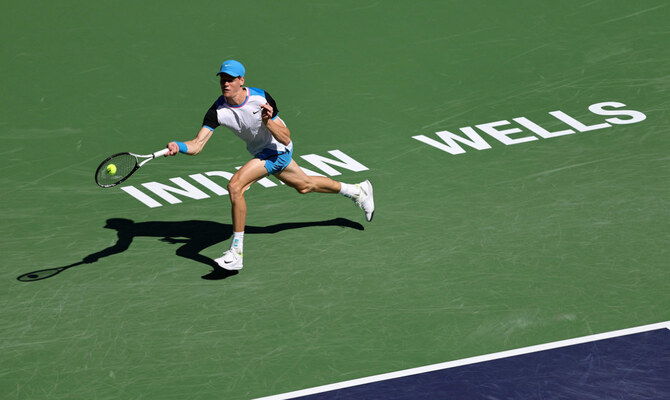PARIS: Tennis world No. 1 Jannik Sinner has been cleared of any wrongdoing after twice testing positive for a banned substance earlier in the season, the International Tennis Integrity Agency (ITIA) announced Tuesday.
Sinner provided an in-competition sample at the Indian Wells Masters on March 10, 2024 which contained the presence of a metabolite of clostebol at low levels, according to the ITIA.
Clostebol is an anabolic agent prohibited at all times by the World Anti-Doping Agency (WADA).
A further sample, conducted eight days later out of competition, also tested positive for low levels of the same metabolite.
“ITIA today confirms that an independent tribunal convened by Sport Resolutions has ruled that Italian tennis player Jannik Sinner bears No Fault or Negligence for two Anti-Doping Rule Violations under the Tennis Anti-Doping Programme (TADP),” said the agency in a statement on Tuesday.
“The player explained that the substance had entered their system as a result of contamination from a support team member, who had been applying an over-the-counter spray (available in Italy) containing clostebol to their own skin to treat a small wound.”
The ITIA added that the support team member in question had applied the spray between March 5-13 during which time they also provided daily massages and sports therapy to Sinner, which resulted in the contamination.
While the 23-year-old Italian has been cleared of any wrongdoing, he will be stripped of his results, prize money and the 400 ranking points he accumulated at Indian Wells, in accordance with the anti-doping rules in force.
“I will now put this challenging and deeply unfortunate period behind me,” said Sinner in a statement published on X.
“I will continue to do everything I can to ensure I continue to comply with the ITIA’s anti-doping program and I have a team around me that are meticulous in their own compliance.”
But other players on the tour have reacted to the news with skepticism and anger.
“Ridiculous — whether it was accidental or planned,” wrote Australian player Nick Kyrgios on X.
“You get tested twice with a banned (steroid) substance... you should be gone for 2 years. Your performance was enhanced. Massage cream... Yeah nice.”
Canadian Denis Shapovalov wrote on social media: “Can’t imagine what every other player that got banned for contaminated substances is feeling right now.”
The positive tests were not intially made public while the ITIA investigation was ongoing.
Provisional suspensions were applied to Sinner after the two tests, however he successfully appealed them both meaning that he was able to continue competing.
ITIA CEO Karen Moorhouse said: “Following that investigation, the ITIA accepted the player’s explanation as to the source of the clostebol and that the presence of the substance was not intentional.”
The ATP, the governing body of men’s professional tennis, backed up Sinner and the investigation process.
“We are encouraged that no fault or negligence has been found on Jannik Sinner’s part,” read a statement on the ATP Tour’s website.
“We would also like to acknowledge the robustness of the investigation process and independent evaluation of the facts under the Tennis Anti-Doping Programme (TADP), which has allowed him to continue competing.
“This has been a challenging matter for Jannik and his team, and underscores the need for players and their entourages to take utmost care in the use of products or treatments.
“Integrity is paramount in our sport.”























